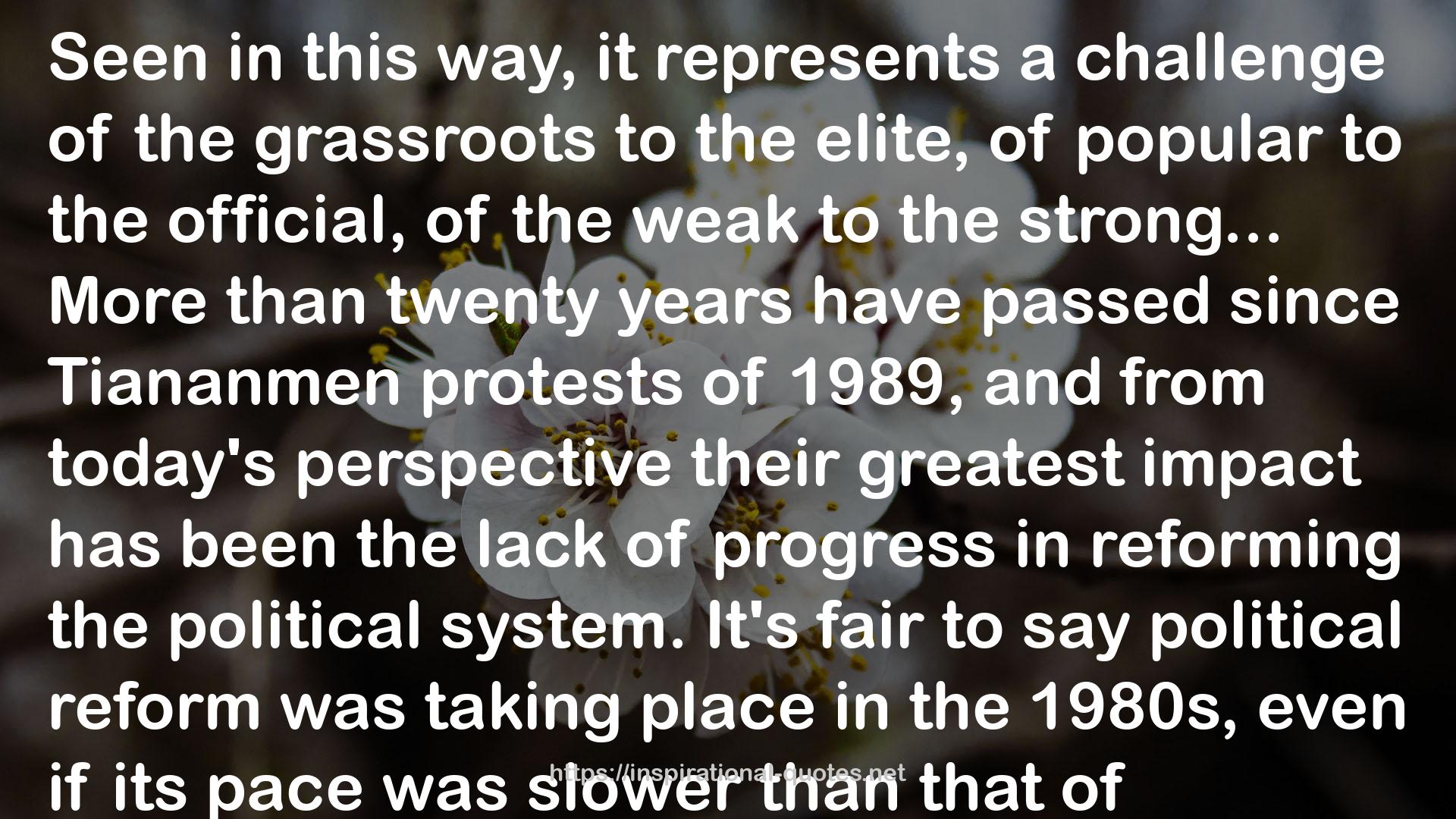" Seen in this way, it represents a challenge of the grassroots to the elite, of popular to the official, of the weak to the strong...
More than twenty years have passed since Tiananmen protests of 1989, and from today's perspective their greatest impact has been the lack of progress in reforming the political system. It's fair to say political reform was taking place in the 1980s, even if its pace was slower than that of economic reform. After Tiananmen, however, political reform ground to a halt, while economy began breakneck development. Because of this pradox we find ourselves in a reality full of contradictions: conservative here, radical there; the concentration of political power on this side, the unfettering of economic interests on that; dogmatism on the one hand, anarchism on hte other; toeing the line here, tossing away the rule book there. Over the past twenty years our development has been uneven rather than comprehensive, and this lopsided development is compromising the health of our society.
It seems to me that the emergence - and unstoppable momentum - of the copycat phenomenon is an inevitable consequence of this lopsided development. The ubiquity and sharpness of social contradictions have provoked confusion in people's value systems and worldview, thus giving birth to the copycat effect, when all kinds of social emotions accumulate over time and find only limited channels of release, transmuted constantly into seemingly farcical acts of rebellion that have certain anti-authoritarian, anti-mainstream, and anti-monopoly elements. The force and scale of copycatting demonstrate that the whole nation has taken to it as a form of performance art. "
― Yu Hua
Image for Quotes

